 Tourism
Tourism
Sea captains pose South Sound as cruise berth option
(CNS): A number of the Cayman Islands veteran mariners and sea captains met up last Saturday to open up public debate about an alternative location for Grand Cayman’s cruise berthing facilities. Choppy Delapenha made a public presentation suggesting that South Sound would prove a more suitable location for the port, based on a proposal by Captain Paul Hurlston and Captain Harris McCoy. The two captains have said that “a modern, secure cruise ship dock, capable of holding up to a dozen cruise ships” could be construction in the South Sound instead of George Town.
Disappointed that captains and seafarers have never been consulted by government regarding the maritime issues, Capt Hurlston and Capt McCoy have, on their own initiative, designed a port facility that could hold up to 12 cruise ships and twenty mega-yachts, which the premier has indicated he would like to attract.
Capt McCoy insisted that he undertook the project with his friend with no other interest than serving the best interests of the Cayman Islands. “I’m not representing anyone. I’m not promoting anything for anybody. This is just my idea from my many years at sea,” he said about the proposal, which was aired formally for the first time on Saturday evening at the Grand Caymanian resort.
The two veterans believe that the eastern-most area of South Sound has very few if any boaters and swimmers and the captains say that this, as well as the location's proximity to George Town, the Linford Pierson Highway, and the quick jump to North Sound via Grand Harbor, makes the South Sound option “irresistible”, they said.
They also stated that the site could provide the home dock being sought in the western Caribbean by Carnival Cruise Lines. “If Grand Cayman were to secure this contract with Carnival, not only could this idea go forward, but Mr Bush’s plan for a larger airport would fuse with this idea, for the crew members and passengers for Carnival would fly to and from Grand Cayman by the thousands,” they suggested.
In their alternative plan, the entrance channel to the proposed dock would be 500 feet wide and 40 feet deep. Captain Hurlston also spoke about the need for the latest security measures required in modern ports. “We’d be building this port from scratch and ports now require a lot of security measures. All these security features can be built into it,” he said. One aspect for security would be the fact that the port would only connect to the land in one point, allowing for security personnel to walk around the dock and keep an eye on that one land-sea union.
The two also envision two break walls built into the project, which they claim would protect one of the Island’s lowest points from flooding.
The captains said the area also has a history of being a safe harbour during severe weather, which they said adds to their argument that the South sound should be considered as a genuine alternative to the capital. They dismissed two other spots on the island
“The Great Sound cannot work,” they both believe. “It would not pull away the traffic from Seven Mile Beach. As for Half Moon Bay, the weather won’t allow it to work and the distance to town is too great.”
Captain Hurlston also said they were not the first people to propose thislocation of a port in Prospect Point. “Captain Theo Bodden proposed a dock in the same area off Prospect Point years ago. I was against the idea in those days, but now I understand his idea to use the existing reef for a foundation for a pier. It’s a great spot close to town and to the airport,” Captain Hurlston said of the idea.
The proposal is unlikely to be well received from an environmental protection perspective, or from residents in the area, but as yet the plan has not been formally proposed to the government. At present the Cayman government remains in exclusive talks with China Harbour Engineering Company (CHEC) to develop two finger piers and cruise berthing facilities in George Town. The MOU signed by the premier is still valid until November, when Premier Bush has stated he hopes to move to a heads of agreement with the Beijing firm and begin construction work shortly after.
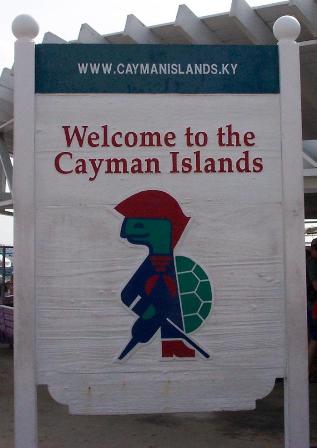
Rollover comes as relief to tourism sector
 (CNS): The news of a proposed temporary lifting of Cayman’s seven year work permit term limit, commonly known as the rollover policy, has been welcomed by tourism and real estate sectors which have both persistently pointed the finger at the policy as one of the critical problems facing their industries. Tourism would have been particularly hard hit over the next twelve months without the reprieve as hundreds of employees were facing rollover. Very few work-permit holders at the lower end of the pay scale have been given key employee causing serious challenges for the tourism sector. The Cayman Islands Tourism Association (CITA) said the news of the rollover reprieve came as a relief for many local businesses.
(CNS): The news of a proposed temporary lifting of Cayman’s seven year work permit term limit, commonly known as the rollover policy, has been welcomed by tourism and real estate sectors which have both persistently pointed the finger at the policy as one of the critical problems facing their industries. Tourism would have been particularly hard hit over the next twelve months without the reprieve as hundreds of employees were facing rollover. Very few work-permit holders at the lower end of the pay scale have been given key employee causing serious challenges for the tourism sector. The Cayman Islands Tourism Association (CITA) said the news of the rollover reprieve came as a relief for many local businesses.
“With the numerous challenges that both industries have faced during the economic downturn it is a relief for businesses to have the pressure of rollover removed, even if only on a temporary basis. If this had not been addressed there was tremendous concern over the economic loss that our country would continue to face,” the industry body stated in a release on Tuesday.
Trina Savage-Christian, Executive Director with CITA now hopes that the real discussion might begin. “We would now like to see a much more in depth look at how Cayman’s Immigration law affects the tourism industry, in particular how key employee and permanent residency applications are assessed,” she said. “In general the higher paid workers within the industry such as general managers may well have made it to key employee, but there have been plenty of lower paid staff within the tourism industry who have been just as key to an organisation, but who have had their key employee application turned down.”
Savage-Christian would like to see business owners have a much greater say in who is allocated a key status within their organisations because they are best placed to decide which members of their staff truly went above and beyond the call of duty. CITA would like to see such individuals, perhaps servers, cooks, concierge or valet car workers who do much more than what their job description entails and go ‘above and beyond’, given the opportunity to stay on island and continue to contribute positively not only to their employer, but to the economy, the community and to the guest experience of visitors.
CIREBA president Jeremy Hurst agrees that the system needs to be changed. “At CIREBA we are not proposing that all immigration controls are removed, far from it. We believe that the Islands should be selective to attract good people. It worked well before for the Islands and it should work again,” he said.
Hurst believes that the rollover policy prevented people from putting down roots as they had no real incentive to stay and blend in with Caymanian society, something that made Cayman strong and unique in the past. He also worries, as an individual heavily involved with service clubs, that some individuals are merely joining such organisations to simply tick the right boxes on their permanent residency applications, lacking a true incentive to help the community.
“The rollover policy has detrimentally affected the very people who we aretrying to retain, i.e. middle management, who could and would invest in Cayman by buying propertyand giving to the community if they had the opportunity but are put off from doing so because they had no security of tenure,” he stated.
The drop in Cayman’s population has led to all time high vacancy levels in the apartment rental market, which, said Hurst, has resulted in rents falling drastically. Both of these factors have had a negative effect on the economy as a whole. “This suspension should hopefully help reverse that trend and build investor confidence,” he added.
In agreement with Savage-Christian, Hurst also believes that the key employee aspect of current immigration policy has been misapplied and that it should not be relegated to a benefit for just skilled professionals mainly in the financial services industry.
“I think that any skilled worker who shows commitment to the Islands should be given an opportunity to receive residence,” he said. “We need to get back to looking at individuals who are good for the Islands as a whole, not just a particular business.”
CIREBA is calling for the term limit policy in its entirety to be permanently scrapped, or at least see the period of time an individual must break their residency in order to be granted another work permit reduced from a year down to three months. Individuals who have to leave for a year are unlikely to come back to Cayman because of the cost of uprooting their families. “Doing so would give an immediate and much needed boost to the economy,” the organisation as stated.
Both CITA and CIREBA have submitted a request to the Premier to have representation on the review committee in order to provide insight into the particular needs of their industries.
Just over a week ago the premier made the surprise announcement that the controversial policy would soon be suspended once he had discussed the issue with Cabinet and crafted the necessary legislative changes to bring to the Legislative Assembly. Bush said that a commission will be formed to examine the impact that rollover has had on the economy and analyze the pros and cons. It will be expected to come up with a report and recommendaitons for a new policy to help balance the conflicting issues facing the Cayman Islands community when it comes to immigration.
The challenge government faces is how to offer security of tenure to employees who are needed in order to instil confidence in the business community and economic drivers, while at the same time limiting the numbers of expatriates that can become Caymanians to prevent the local population from losing control of the political landscape.
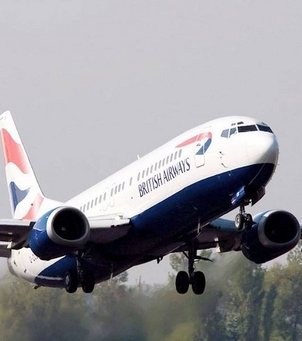
British Airways boss blames APD for Caribbean cuts
 (Breaking travelnews): British Airways has announced plans to reduce flights to the Caribbean following a sharp rise in Air Passenger Duty. Blaming falling passenger numbers on the punitive tax, BA chief executive, Keith Williams, confirmed the news during the Caribbean Tourism Organisation conference in St Martin. Addressing an industry audience, Williams said: “The Caribbean is an important destination for us and we have a long heritage of serving the region. However, we cannot deny the reality that demand is not as high as it has been. Taxation is most certainly a factor in this and, sadly, a factor in our decision to reduce our frequency to the Caribbean next summer.”
(Breaking travelnews): British Airways has announced plans to reduce flights to the Caribbean following a sharp rise in Air Passenger Duty. Blaming falling passenger numbers on the punitive tax, BA chief executive, Keith Williams, confirmed the news during the Caribbean Tourism Organisation conference in St Martin. Addressing an industry audience, Williams said: “The Caribbean is an important destination for us and we have a long heritage of serving the region. However, we cannot deny the reality that demand is not as high as it has been. Taxation is most certainly a factor in this and, sadly, a factor in our decision to reduce our frequency to the Caribbean next summer.”
He added: “We continue to protest against the rises in APD and I hope the government’s recent consultation will lead to a more equitable banding system that does not penalise the Caribbean.”
Among the reductions in capacity to the Caribbean, British Airways is expected to cancel its two weekly flights from Gatwick to Montego Bay, Jamaica, next March.
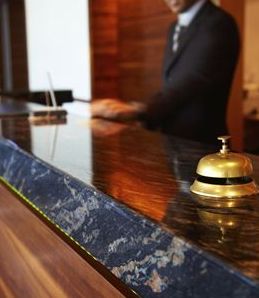
Tourism school planned for local and foreign students
 (CNS): The country’s premier has announced his intention to establish a local hospitality and tourism school early next year that will encourage more Caymanians into the sector and eventually be open to international students. Speaking in the Legislative Assembly on Wednesday McKeeva Bush said the country needed to take a long-term view of tourism and train more local people for jobs in the industry at all levels. He said feedback suggests visitors are searching for authentic, local experiences for which they are willing to pay if Cayman can deliver.
(CNS): The country’s premier has announced his intention to establish a local hospitality and tourism school early next year that will encourage more Caymanians into the sector and eventually be open to international students. Speaking in the Legislative Assembly on Wednesday McKeeva Bush said the country needed to take a long-term view of tourism and train more local people for jobs in the industry at all levels. He said feedback suggests visitors are searching for authentic, local experiences for which they are willing to pay if Cayman can deliver.
“More Caymanians can and should partake of the benefits of tourism, as the sector grows,” he told his legislative colleagues as he announced the plan. “We must not sit back and fatalistically accept the outdated notion that Caymanians do not wish to participate in tourism. In fact, the level of participation and the enthusiasm we get from young people for the Ministry of Tourism’s Scholarship Programme and the Tourism Apprenticeship Training Programme suggests otherwise.”
Bush said his tourism ministry would be joining forces with the University College of the Cayman Islands, (UCCI) to provide training at an international certification level for employees in the tourism sector and for persons interested in new careers in the industry.
The school, he added would provide a well trained local labour force, with an internationally recognized hospitality certification, offer a range of opportunities and careers for young Caymanians, enable local people to directly participate in the economic benefits from tourism, and enhance the distinctly local cultural flavor of the sector.
“The mission is to develop a hospitality institution to facilitate the certification, career guidance and employment opportunities for a world-class Caymanian workforce,” the premier stated, adding it would be a two-phased project.
In the first phase the school will offer City and Guilds Certification and Associate degree programmes. “We intend to establish relationships with institutions such as Cornell University, Johnson and Wales, and affiliated universities,” Bush explained. The core areas of study will be Food & Beverage; Food Preparation; Spa Services; Front Office Operations; Rooms (House-keeping) and Maintenance.
In the second phase further certification, and degree programmes will be established which will include City and Guilds for Skills Certification; and the Bachelor’s degree programmes of institutions such as Cornell University, Johnson and Wales-affiliated universities, and the Culinary Institute of America. He said additional core areas of study in this phase will include Spa Director, House-keeping Supervisor, Rooms Division Manager and Watersports/Dive Instructor.
“In this second phase, we will also seek to develop the school to accept international students,” Bush added. “This is a bold and ambitious project and it requires input and support from several different quarters. We need the private sector on board as full partners and it is our intention that they will be involved from the outset in areas such as curriculum development and provision of work-study opportunities.”
He said that a number of stake holders already support the Tourism Apprenticeship Training programme and government would be counting on them for even greater involvement and support, including job placement and career paths for participants.
“We will ensure the highest standards of accreditation, including international recognition, so that our students not only receive the best training, but can compete at the highest levels with persons trained anywhere else in the world,” he promised employers.
UCCI will be the academic institution that the tourism and education ministries would be partnering with for the use of campus facilities and lecturers to get the school off the ground.He said government would also be partnering with hotels willing and able to offer appropriate learning environments.
An advisory council of 10-12 members drawn from relevant areas will be appointed to assist with strategic development and fulfillment of the mission of the school which he said would also require support from the immigration department.
“The School will work with the department to develop and offer incentives to private sector entities that become key partners in this programme, particularly with regard to a successful record of employment of High School graduates,” Bush stated. “We must ensure that graduates are provided with the employment opportunities befitting their training and certification, and the support of Immigration is essential in this regard. The TATP programme has demonstrated that this support is needed, as often apprentices face challenges finding work experience, and employment after graduation. We will be counting on Immigration to help address this issue.”
Bush said that such a school waslong overdue and had come to get it done so that young Caymanians will have further opportunities to become qualified professionals within the sector.
“In the long run, our tourism product will benefit as the School will ensure that more of our young people are deployed to become the faces and the local, culturally rooted voices that our visitors want. It will be in their hands to plan for provision of the “authentic” experience visitor’s desire,” the premier said, as he asked for the support of the parliament.
See the premier’s full statement below
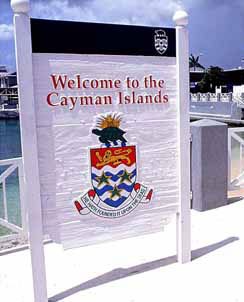
GT suffers worst cruise arrival numbers in a decade
 (CNS): Although government was celebrating improvements in stay over tourism this week, the cruise passenger statistics released by the DoT paint a very different picture. Only 77,735 passengers docked at the George Town harbour in July, which is the lowest number of people calling on Grand Cayman since Ivan struck in September 2004 when the island was closed to tourists. It is also the worst July since the year 2000, when only 61,328 passengers arrived. The fall of almost 33% in cruise numbers on this time last year is a direct result of the cruise liners diverting the new larger ships which are plying the Caribbean to destinations with berthing facilities.
(CNS): Although government was celebrating improvements in stay over tourism this week, the cruise passenger statistics released by the DoT paint a very different picture. Only 77,735 passengers docked at the George Town harbour in July, which is the lowest number of people calling on Grand Cayman since Ivan struck in September 2004 when the island was closed to tourists. It is also the worst July since the year 2000, when only 61,328 passengers arrived. The fall of almost 33% in cruise numbers on this time last year is a direct result of the cruise liners diverting the new larger ships which are plying the Caribbean to destinations with berthing facilities.
Air arrivals, however, continue to grow with figures improving by some 7.5% this month on July 2010 with 31,407 arrivals, the highest since July 2004.
Stay-over visitors were up for the tenth month in a row and McKeeva Bush who, is tourism minister as well as premier, said the figures were even more significant when considered against the fact that the figures for December last year were the highest for any December since the year 2000
"From February through May our tourism statistics have continued to improve and for the month of June, air arrivals were up by 7.6 percent, over June 2010. This represented the third strongest June arrival figure in 10 years. Furthermore, for the month of July, arrivals from the US are up 7.4 percent over last July, and there is a dramatic 72.1 percent increase in arrivals from Canada this July, over what we were seeing in July 2010," he said.
Shomari Scott, Acting Director of Tourism, said the growth was gratifying, particularly during these tough economic times, and illustrated that the steps being taken by the DoT were working. Working more closely with industry partners, realigning CAL and introducing new routes to boost capacity are paying dividends.
“By working with CITA and other industry partners, the department has launched a number of new initiatives and promotions that are designed to drive visitation and support local businesses and service providers. Clearly, these are delivering the desired results, as the latest tourism figures demonstrate that the Cayman Islands remains a sought after destination for families, divers, weddings and honeymoons and those simply seeking sun, sea and sand,” he said.
"As we move into the fall season a series of new promotions, including the Visiting Friends and Relatives, Dive Madness and Pirates Week deal, will be on offer to travellers to maintain the positive trend,” he added, stating that if the momentum is maintained through the end of the year the islands could achieving the goal of attracting 300,000 air arrivals in 2011.
The improved air statistics were mostly down to continued increases in passengers from Canada and North America. 1,239 people flew in from Canada this July compared to 720 in the same month in 2010, which is an increase of more than 72%. Almost 800 people visited from the US, representing a 7.4% increase from that region.
Occupancy rates at both hotels and apartments, however, did not improve on last year as in July 2010 hotels were more than 70% occupied compared to a rate of 67.2% this year. Occupancy at apartments was almost the same as July 2010 which was 47.7% and this year it was 47.6%, suggesting that the extra visitors arriving by air are staying with friends and family.
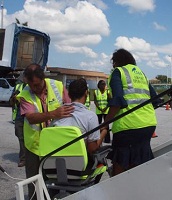
New stair lift for passengers with reduced mobility

Marcus Cumber, Managing Director and owner of Island Air, said his company wanted to ensure that any equipment purchased would enhance the safety of passengers with reduced mobility, while at the same time allowing families of the disabled passengers to board together, without any delays.
Kerith McCoy, Senior Manager Airport Operations for the Cayman Islands Airports Authority (CIAA), remarked, “While meeting recognised industry standards in PRM handling, the provision of this service will further enhance the customer experience at Owen Roberts International Airport. We sincerely thank Mr Cumber and his team for realising this objective which will significantly benefit airport users with reduced mobility. The CIAA also extends its appreciation to Flowers Air Dispatch Services for handling the enplaning and deplaning of passengers with reduced mobility over the years in a sensitive and safe manner.”
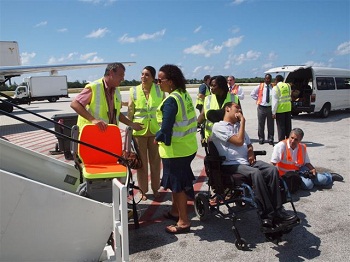 Premier McKeeva Bush also offered congratulatory remarks to Island Air in making this service available at the airport. ‘’I am excited, as is the Department of Tourism, to see that we are taking additional steps to ensure all of our guests experiences are as memorable as possible. Due in part to our exceptional marine and dive environment, and the generally accepted understanding that diving is beneficial to persons with disabilities; we have been seeing an increase in disabled divers coming to the Cayman Islands. While our dive operators have been praised on their professionalism in the execution of dive activities for the disabled, we still have much further to go generally for persons with disabilities.”
Premier McKeeva Bush also offered congratulatory remarks to Island Air in making this service available at the airport. ‘’I am excited, as is the Department of Tourism, to see that we are taking additional steps to ensure all of our guests experiences are as memorable as possible. Due in part to our exceptional marine and dive environment, and the generally accepted understanding that diving is beneficial to persons with disabilities; we have been seeing an increase in disabled divers coming to the Cayman Islands. While our dive operators have been praised on their professionalism in the execution of dive activities for the disabled, we still have much further to go generally for persons with disabilities.”
minister Rolston Anglin also expressed his appreciation. “On behalf of the Ministry of Education, Training & Employment and our Committee for Persons with Disabilities, I wish to thank Island Air for providing this crucial service for persons with disabilities living in and visiting our islands. This service has been needed for a long time and will truly improve the safety and experience of persons with mobility challenges when boarding and deplaning an aircraft. Many services for persons with disabilities are still needed in our country but through the support of such private entities as Island Air we can achieve our goals and develop a more universally accessible community for all persons. I would also like to congratulate the airlines that have contracted these services and, also, thank the Airports Authority for assisting with the arrangements to ensure that this service became available. Through such teamwork and partnerships, our country benefits immensely.”
Expressing her delight that this service has finally become available, after so many years of airline personnel having to manually carry her son up the stairs of the aircraft for boarding and deplaning, Mitzi Callan remarked, “I congratulate the CIAA and Island Air for recognizing the importance of safely-lifting mobility-challenged persons on and off aircraft! My son, Morgan, travels frequently and is always apprehensive about boarding. This new system is considerably safer for both the disabled and staff. For that, we thank the CIAA and Island Air.”
Roger Muller, Founder and President of Stay-Focused Inc, a US-based non-profit organisation that offers scuba diving experiences to teens and young adults with disabilities, also remarked, “As someone who works with persons with disabilities and has brought numerous program participants to Grand Cayman for the past eight years, I am delighted to see that Island Air has taken the initiative to introduce this service. Persons with disabilities are always aware of efforts that have been made to offer them access, and the process of getting on and off a plane can be challenging. Most importantly, they want to retain their sense of independence and dignity, and the stair lifts will provide excellent support for those choosing to makeuse of them. The stair lifts will also ensure passenger safety, which is always a priority. Island Air’s introduction of the stair lifts sends a positive signal to the disabled community and speaks well for Cayman’s commitment to treating all persons equally.”
The Ambistair stair lifts are fully operational and passengers with reduced mobility can now make arrangements with their travel agents or airline for provision of this service.

CITA frustrated over policing
 (CNS): The industry body which represents businesses working in the tourism sector has expressed its growing frustration that constant calls to address the islands’ violent crime problem with more visible policing has fallen on deaf ears. The Cayman Islands Tourism Association has asked the authorities time and time again to increase police patrols in the areas most frequented by tourists but at a recent meeting with the commissioner the president was told that there was no money for community police because of budget cuts. The government has, however, stated on numerous occasions that the police are getting the resources they need to fight crime and the 2011/12 budget allocation has remained at just over $29 milllion.
(CNS): The industry body which represents businesses working in the tourism sector has expressed its growing frustration that constant calls to address the islands’ violent crime problem with more visible policing has fallen on deaf ears. The Cayman Islands Tourism Association has asked the authorities time and time again to increase police patrols in the areas most frequented by tourists but at a recent meeting with the commissioner the president was told that there was no money for community police because of budget cuts. The government has, however, stated on numerous occasions that the police are getting the resources they need to fight crime and the 2011/12 budget allocation has remained at just over $29 milllion.
Although the RCIPS has received the same appropriation for this current financial year of just over $29 million, Chief Superintendent John Jones recently stated that the police head count had fallen from its peak of a few years ago and it was community policing that was most impacted. He said resources for neighbourhood officers were being used to support other areas in the face of the increase in violent crime and surge in robberies. “The feet on the beat,” he said, was one area that was under resourced.
However, in the wake of yet another violent robbery at a restaurant frequented by visitors last week, Trina Christian of CITA stated that the need to prevent crime impacting tourism was critical.
“Our members are becoming increasingly frustrated that, despite the endless calls, the patrols have not increased in the key areas,” she stated. “A recent meeting with our president and the commissioner has revealed that the community policing budget has been cut and this is where the ‘tourism police’ would have come from.”
For some time now CITA has campaigned to have police officers allocated to patrolling the Seven Mile Beach area, getting to know local business and offering a secure presence for visitors, but so far there has been no response from the authorities. She said CITA is not asking for mass coverage but a regular light police presence in areas frequented by visitors to make tourists feel safe and criminals think twice.
“We keep saying this over and over again because when word gets out about crime it will be devastating to the industry,” she added. “We are relying on our past reputation of being crime free, and although we are still better than many other places, the growing crime is creating more and more of a problem for the tourism product.”
Christian said that the CTIA membership knows it’s not just a police problem and that there is a much bigger picture. There are many long term issues to be addressed and the need for the community to play its part, but in order to protect the tourism sector, which so many people depend on, she said there was also a need for police visibility in key areas todeter the robbers and make visitors feel comfortable.
She said the recent news from the commissioner that the budgets had been cut was disappointing and that CITA would now have to lobby government to see if resources can be found to fund community policing in order to guarantee a presence in the Seven Mile Beach area.
“We continue to say that we need to take the crime issue seriously and we were under the impression that the police were getting the resources they needed but now we hear that there is no money to police tourism. It’s confusing,” Christian added.
She pointed out that in the face of the economic uncertainties, crime remained of critical importance to the tourism business. She said no one should underestimate what a devastating impact an armed robbery at a restaurant where tourists are there enjoying a meal can have on the entire tourism product. As far as the CITA membership is concerned, Christian said, the resources have to be found in order to protect the sector which remains one of the country’s most important economic generators.
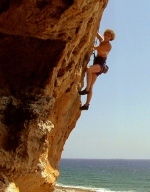
Hopes and promises offered for future of Brac tourism
 (CNS): At a tourism awareness event during a long weekend government retreat on Cayman Brac at the Alexander Hotel, Premier McKeeva Bush noted that the GDP of the Sister Islands has dropped from $70 million in 2006 to $60 million now, but offered only vague promises and repeated previous announcements about the road forward. He said that it costs central government $13 million for the administration and running of the Sister Islands, which did not include the airport, seaport or the running of the hospital. “I’m not sure if Cayman Airways is in there either,” he said.
(CNS): At a tourism awareness event during a long weekend government retreat on Cayman Brac at the Alexander Hotel, Premier McKeeva Bush noted that the GDP of the Sister Islands has dropped from $70 million in 2006 to $60 million now, but offered only vague promises and repeated previous announcements about the road forward. He said that it costs central government $13 million for the administration and running of the Sister Islands, which did not include the airport, seaport or the running of the hospital. “I’m not sure if Cayman Airways is in there either,” he said.
Bush said that he had had discussions with “the Chinese” about the “first class marina and ocean front facility pursued by the Scotts” and said they had made a commitment to build it, but offered no further details. “Of course,” he said, “they have an arrangement with Cayman first and that has to be done before they do anything new.” He has met with the Scott family (of Scott Development, which owns the surrounding land in the area around the proposed dock) and plans to work with them, he said, adding, “I’m not sure that that is something that will happen immediately, maybe two years.”
The premier said he has met with the board of Cayman Airways to discuss the possibility of improving the airlift to Cayman Brac, though he said there were “no promises.” Bush said he hoped that improved airlift would provide opportunities, especially in replacing Divi Tiara (a hotel which closed in September 2006 and is now derelict). He hoped those talking would make headway, he said, without explaining who or what was being discussed, “but it’s difficult to even get people talking, much less put money on the table.” He also hoped that with more properties they could get more airlines to consider routes to Cayman Brac.
There have been a number of applications for million dollar homes on Little Cayman, while on Cayman Brac there has been an application for 12 more affordable homes, he said.
Noting the importance of the existing tourism properties on Cayman Brac, he said, “I don’t know why … they still have problems with the Alexander Hotel.” Referring to the smell that sometimes emits from Salt Water Pond next to the hotel and proposals to alleviate this by letting in sea water, he said, “If it means letting in water, then let the water in … That family has invested millions in that hotel. The pond is a deterrent.” However, he said, “If I have to move any mountain, then tell me which mountain I have to move.”
He identified lionfish as another problem on Cayman Brac that was “close to a critical situation” and said he was going to work with the minister (Mark Scotland) to offer some type of relief, which might include “a type of bounty system”.
The Brac office Department of Commerce and Investment has assisted 30 new or existing businesses in the 2011 calendar year so far, Bush said. The Development Bank continues to play a critical role in the economic recovery of the islands by providing financial advice and payment relief in restructuring finances. The past year the CIDB has provided financing for home renovations and construction of a new residence and is also financing a commercial venture, which will include a restaurant in phase 1 that is already underway, and a plaza in phase 2. The bank representatives will be on the Brac on 17 September, he said.
The premier repeated a previous announcement about the name change of the Gerrard-Smith International Airport to the Captain Charles Kirkconnell International Airport. “This takes away nothing from Mr Smith and Mr Gerrard and what they did,” the premier said. “I won’t disrespect any of Her Majesty’s past representatives but it was our people who took us to where we are.” There will be an appropriate ceremony in the near future, he said.
In the question and answer section Eddlee Martin noted the high cost of living on Cayman Brac. As an example he checked the prices at each of the three supermarkets on Cayman Brac for a box of Cornflakes that costs $5.89 on Grand Cayman. He said the prices he found for the same size and brand were $12.29, $14.30 and $15.25. “Something needs to be done. We are being taken advantage of,” Martin said and suggested that the government, which buys heavily from the local stores for social services, should boycott them until they bring down the prices. The premier said that there were no statistics on prices and a survey would be done so the government had a better idea of what to do, but he noted the economies of scale in servicing a smaller population.
Heavy equipment operator Raymond Scott complained about the high cost of fuel, which is currently $6.01 for diesel and $5.83 for gasoline on Cayman Brac, and asked why the government insisted on using the two fuel companies, Esso and Texaco, and did not buy from other sources, such as Petrojam in Kingston, Jamaica, or from Cuba, which, Scott noted, the government was already dealing with to buy other commodities. In response, the premier noted the MOU he had signed “to explore the matter” of oil refinery for Grand Cayman, which he claimed would “be cheaper all round”.
Scott also complained bitterly about the price of a licence to clear up beach property (CI$5,000), and said that he has been harassed by the Development Control Board and the police for doing so, saying that government workers did the same thing with a lot less care, since he always saved indigenous trees and shrubs wherever possible. He said he had been arrested and humiliated for making “a few scratch marks” and this had made it difficult for him to feed his family.
The regulation concerning movement of matter on properties is being looked at, the premier told him, but they have to take advise from the planning department. “We have to follow guidelines,” he said.
The meeting on Cayman Brac also served to launch the national CaymanKind campaign, which was launched in the international market earlier this year. The Brac event was the first of a series of town hall meetings, which are planned throughout the islands.
In a presentation given by Rosa Harris of the Department of Tourism, Brackers learned that the campaign will educate the local population in the Cayman Islands about tourism and “evoke random acts of kindness as a way of life.”
Rock climbing on Cayman Brac is highly rated by enthusiasts of the sport but has never been promoted by the Cayman Islands government, but the DoT says it now has the “green light” from the premier to explore the possibilities. However, this is still in the early initial discussion stages.
In other initiatives for Cayman Brac, the DoT is planning a week long musical event, and better signage for tourism has been designed but has not progressed beyond the conceptual stage.
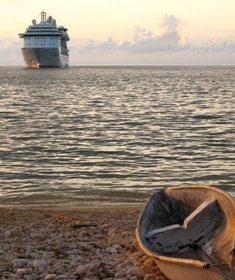
Summer cruise arrivals continue the decline
 (CNS):Statistics from the Department of Tourism reveal cruise passenger arrivals continued to drop this summer as had been predicted by the tourism industry as a result of the cruise lines sending their new mega-ships to other ports. In June, just over 87,000 passengers stopped in Grand Cayman representing a more than 26% decline on the arrivals for the same month last year. At the year’s half way point cruise arrivals in total are down by only 3.4% because of a good start to the yea. But with the passenger numbers expected to continue falling this figure is likely to be considerably lower by the year end. However, air arrivals continued the on-going upward trend with almost 27,000 people flying into the Cayman Islands.
(CNS):Statistics from the Department of Tourism reveal cruise passenger arrivals continued to drop this summer as had been predicted by the tourism industry as a result of the cruise lines sending their new mega-ships to other ports. In June, just over 87,000 passengers stopped in Grand Cayman representing a more than 26% decline on the arrivals for the same month last year. At the year’s half way point cruise arrivals in total are down by only 3.4% because of a good start to the yea. But with the passenger numbers expected to continue falling this figure is likely to be considerably lower by the year end. However, air arrivals continued the on-going upward trend with almost 27,000 people flying into the Cayman Islands.
While the cruise arrival statistics make for depressing reading the air arrivals indicated that stay-over tourism is holding its own with the second highest number of people flying into Cayman in June since 2002. 26,960 people arrived by air an increase of 7.6% on 2011. So far air arrivals have soared in 2011 compared to 2010 which was also a much better year than 2009. At the year’s half way point air arrivals are currently up by 9.4%
This month the increase in arrivals was not dependent on the boost from Canadian visitors which went into decline as a result of the changes in the WestJet summer schedule, but was down to a growth in passengers from North America with 23,493 coming to Cayman from the states compared to 21,380 last year.
However, occupancy rates at local hotels were not improved by the air passenger arrival figures which were less than 60% full compared to more than 70% this time last year. Condos and apartments fared slightly better enjoying a 42% occupancy rate compared to just under 37% last year and visitors are staying in Cayman slightly longer with hotel stays averaging at four and a half days and guests in apartments staying for almost seven and a half days. Last year the average length of stay in a hotel was 4.3 days and less than a week in apartments.

Carnival promises Jamaican ports over 1.2m visitors
(Gleaner): Carnival Cruise Lines has reached an agreement with the Jamaican government guaranteeing Montego Bay and Ocho Rios at least 1.2 million visitors over 3 years. The agreement will ensure both ports maintain current levels of cruise arrivals, despite the competition from the new Falmouth cruise ship pier. Carnival has also agreed that if it fails to deliver the 1.2 million visitors, it will pay the difference between the actual numbers and the guaranteed figure, said transport minister Mike Henry, Tuesday. "This development means that Ocho Rios and Montego Bay will continue to see the same volume of visitors ..and everyone can now plan in relation to the arrival of cruise ships from Carnival to these ports," said Henry.
In its first three months of operation, February to April, the Falmouth pier is said to have received close to 150,000 passengers and crew, and surpassed Ocho Rios as Jamaica's main cruise ship port. Royal Caribbean, a financial partner with the Port Authority of Jamaica (PAJ) in the Falmouth port, has said it will bring in as many as eight million visitors to the historic coastal town over a decade.